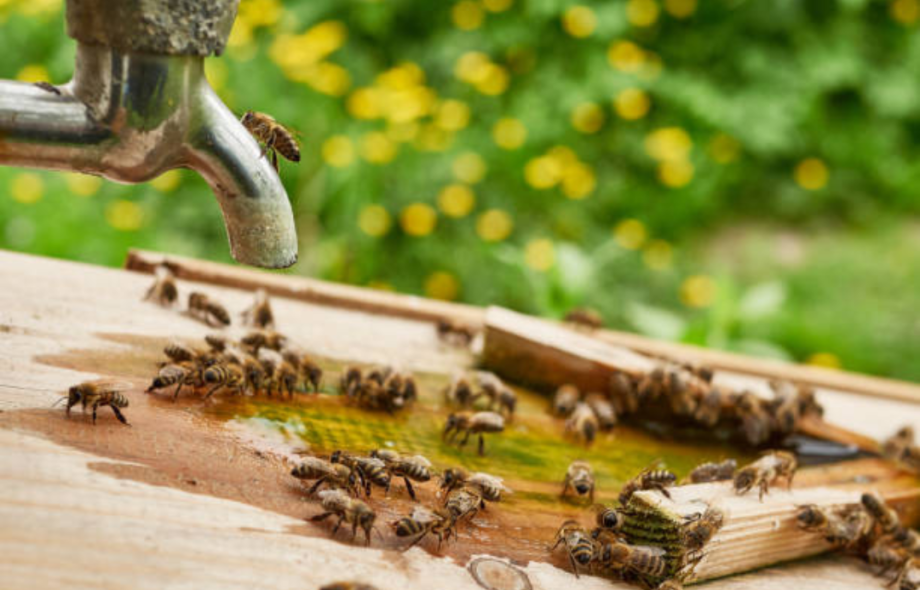An outdoor kitchen can be a luxurious and functional extension of your home, especially during warm weather months. It allows you to cook, entertain, and enjoy meals under the open sky. However, this serene setup can quickly become uncomfortable if bees start hovering around your cooking space. Bees are naturally attracted to the smells of food and sugary drinks, making outdoor kitchens a prime target. Fortunately, with some planning and proactive measures, you can keep your outdoor kitchen bee-free without harming these essential pollinators.
Understand Why Bees Are Drawn to Your Outdoor Kitchen
Before you can effectively deter bees, it’s important to understand what attracts them to your outdoor kitchen. Bees are constantly searching for nectar, and unfortunately, many items commonly found in your cooking space mimic the scent of flowers. Think marinades, fruit bowls, soda, or even barbecue sauce. Trash cans and dirty dishes also emit odors that signal an easy food source to bees. If you’re cooking near flowering plants or have a garden close by, that only adds to the problem. Recognizing these attractions helps you develop smarter prevention strategies.
Location and Design Play a Role
When planning or organizing your outdoor kitchen, its location and layout matter more than you might think. If possible, place your kitchen away from flowering plants, fruit trees, or compost areas that might naturally attract bees. Opt for screened patios or pergolas with netting that can serve as physical barriers. Avoid bright or floral patterns in your kitchen décor, as these may inadvertently invite bees. If you suspect a hive is nearby, it’s wise to consult a professional bee removal service in Oceanside, CA to assess and handle the situation safely. Professional removal ensures both your safety and the well-being of local bee populations.
Cleanliness is Key to a Bee-Free Kitchen
Maintaining impeccable cleanliness in your outdoor kitchen is essential to keeping bees at bay. Always wipe down counters and grilling surfaces immediately after cooking. Make it a habit to store leftovers in airtight containers and clean up food spills right away. Bees are particularly drawn to sugary drinks, so avoid leaving open cans or juice glasses unattended. Use sealed garbage bins and move them as far from the kitchen area as possible. Cleaning tools, utensils, and even drip trays on grills should be rinsed regularly to eliminate lingering scents that may attract bees.
Incorporate Natural Bee Deterrents
There are plenty of natural, non-toxic ways to discourage bees from entering your outdoor kitchen area. Essential oils such as peppermint, eucalyptus, clove, and citronella are known to repel bees while still offering a pleasant aroma for humans. You can make a DIY spray using these oils and apply it around food prep areas, outdoor tables, and entrances. Additionally, incorporating plants like mint, basil, and lemongrass in nearby planters not only enhances your cooking environment but also serves as a natural deterrent to bees. These solutions are safe, effective, and eco-friendly.
Use Physical Barriers to Your Advantage
Sometimes, the simplest solutions are the most effective. Use mesh food covers to protect your dishes and drinks from buzzing invaders. Install retractable screens or sheer curtains around pergolas or gazebos to block bees without closing off your kitchen entirely. Consider hanging up decoy wasp nests, which have been found to discourage bees and wasps from setting up nearby, as they instinctively avoid competition. You can also invest in fans—bees don’t like strong airflow, so positioning a fan near your cooking or dining area can help keep them from lingering too long.
Modify Your Outdoor Kitchen Routine
If bees are becoming a recurring issue, it might be time to make some small adjustments to how you use your outdoor kitchen. For instance, consider cooking earlier in the morning or later in the evening when bee activity is lower. If you’re entertaining guests, serve food indoors and bring it outside just before eating to reduce exposure time. Limit sugary drinks or keep them sealed. You could even create a designated eating zone separate from the kitchen, so bees are less likely to interrupt your food prep process. These subtle shifts can make a big difference.
Monitor Your Surroundings
Keeping an eye on your outdoor environment will help you detect potential bee issues before they escalate. Check for signs of nests under eaves, in wall voids, or around nearby trees and shrubs. Bees tend to revisit familiar feeding grounds, so if you notice them frequently returning to a specific spot, there might be a hive or consistent food source nearby. Look for decaying fruit on trees or flowering weeds, and remove them promptly. A proactive approach to outdoor maintenance is one of the most effective long-term solutions for maintaining a bee-free cooking space.
Conclusion
Your outdoor kitchen should be a place of enjoyment, relaxation, and memorable meals—not a battleground against buzzing insects. By understanding what attracts bees and implementing a mix of cleanliness, natural deterrents, physical barriers, and routine adjustments, you can reclaim your space without disrupting local ecosystems. And when necessary, don’t hesitate to call in a professional to assess and resolve bee issues safely. With a little diligence and planning, your outdoor kitchen can remain both beautiful and bee-free throughout the seasons.
Service/Product Details:
https://beecassobeeremoval.com/bee-boxes-honey/


 :
: